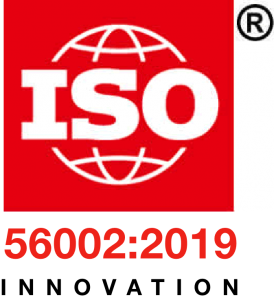
While most companies today have the word innovation in your tag line or mission statement, Babel’s Edge Inc. believes in plugging in innovation driven processes and procedures into every aspect of our services. With that Babel’s Edge is very proud to be among the few companies in the world to voluntarily adopt the ISO 56002 standard for innovation management.
ISO 56002 covers all aspects of innovation management: from the inception of an idea to its implementation on a global scale. Adopting this standard will help Babel’s Edge consolidate our governance, increase the effectiveness of innovation, create the conditions for a widespread innovation culture and foster the emergence of new value propositions.

For organizations, the capacity for innovation cannot be separated from the capacity to understand and respond to the changing conditions of its context, to pursue new opportunities and to exploit the knowledge and creativity of people within the organization and in collaboration with external stakeholders. An organization can only innovate more effectively and efficiently if all the necessary activities and other interconnected or interacting elements are managed as a system. An innovation management system guides the organization to determine its vision, strategy, policy, innovation objectives and to establish the support and processes necessary to achieve the expected results.
Working with experts from 59 countries, the International Organization for Standardization created a new management standard in 2019 that enables companies to base their innovation management on guidelines for successful implementation in order subsequently to innovate more consistently and with less risk and to experiment cost-effectively.
This new standard combines current thinking, academic research and foremost decades of experience how management systems can effectively harness, measure and steer hard to grasp concepts such as ideas, IP, product value or customer insights and market adoptance.
The innovation management system consists of the following aspects:
- leadership, culture, collaboration
- strategy, direction and strategic initiatives
- management of risk and uncertainty
- response to change
- customer engagement
- processes and tools (system approach)
